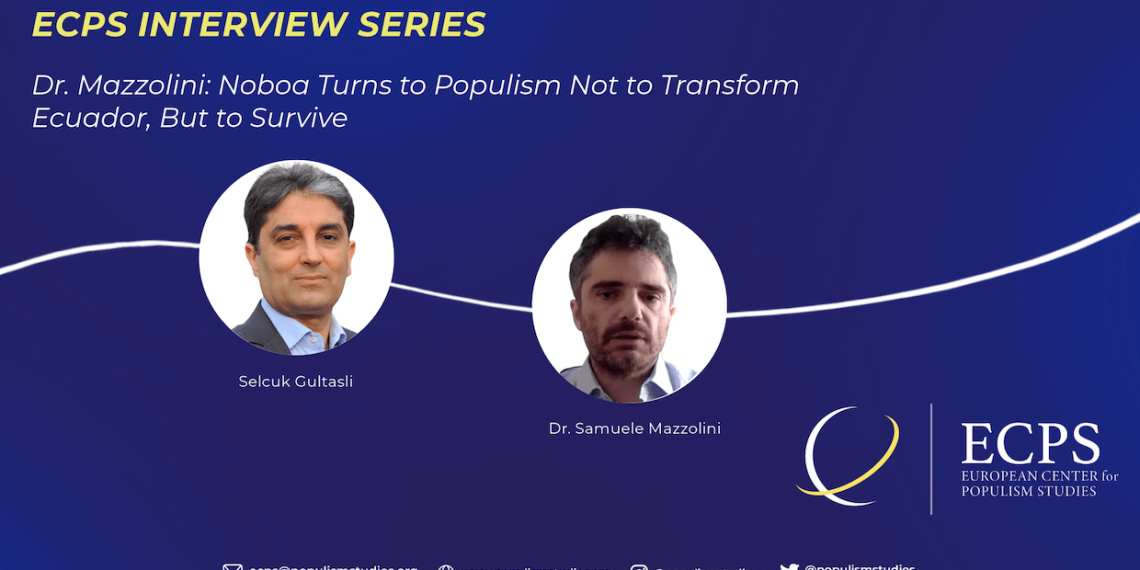In an interview with ECPS, Dr. Samuele Mazzolini argues that Ecuadorian President Daniel Noboa has embraced populism not as a vehicle for transformation, but as a strategy to maintain power amid crisis. Recently re-elected after a snap presidency, Noboa has relied on emergency decrees, militarized crackdowns, and anti-crime rhetoric. “Populism has simply served as a means to cling to power and bolster his personal image,” Dr. Mazzolini asserts. Despite branding himself as a technocrat, Noboa “lacks a coherent national project” and governs through “sheer improvisation.” Dr. Mazzolini warns that Ecuador is entering a “permanent state of exception,” with rising authoritarian tendencies and no clear roadmap for reform.
Interview by Selcuk Gultasli
In a sharply observed conversation with the European Center for Populism Studies (ECPS), Dr. Samuele Mazzolini—Adjunct Professor of Political Science at Ca’ Foscari University of Venice—offers a sobering analysis of Ecuador’s evolving political landscape under President Daniel Noboa. Recently re-elected in the April 2025 run-off, Noboa secured a full four-year term after what he called a “historic” victory. He originally came to power in November 2023 through a snap election and has since defined his presidency by launching a militarized crackdown on Ecuador’s powerful criminal gangs—an approach that has dominated his public image as the country became the most violent in the region.
Despite his win, Noboa’s left-wing challenger, Luisa González, rejected the result, alleging fraud without providing evidence. Against this backdrop of tension and insecurity, Mazzolini argues that Noboa’s political style is not grounded in reform, but in survival. “In Noboa’s case, [populism] has simply served as a means to cling to power and bolster his personal image,” he asserts.
Though Noboa projected a moderate and technocratic profile during his initial campaign, his presidency has taken a decisive right-wing populist turn. “He wasn’t the ‘security candidate.’ That was Jan Topić… But the very moment he took office, he took a different turn,” Dr. Mazzolini notes. Noboa’s embrace of penal populism—relying on military force and emergency powers—has so far failed to reduce violence. “Despite tough talk on crime and gangs, the rates haven’t improved,” Dr. Mazzolini observes.
Crucially, Dr. Mazzolini emphasizes the absence of a coherent political vision. “What are his views on industrial relations? Agricultural policy? Same-sex marriage?” he asks. “There are countless areas where he appears to have no defined position.” Unlike Rafael Correa, whose government—though polarizing—pursued a structured national project, Noboa seems adrift, leaning on improvised alliances and securitarian rhetoric.
As Dr. Mazzolini concludes, Noboa’s presidency appears less like a populist transition toward transformation, and more like the entrenchment of a permanent state of exception: “a deliberate effort to take advantage of the situation… because he saw the opportunity was ripe to consolidate his image.”


